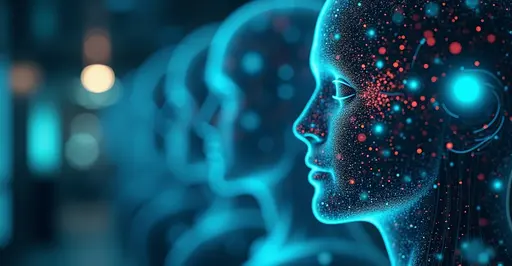AI is revolutionizing early disease detection through advanced diagnostics, predictive analytics, and remote monitoring. Breakthroughs include stroke assessment tools twice as accurate as humans, fracture detection systems, and predictive models identifying diseases years before symptoms. While facing regulatory and trust challenges, AI promises to address healthcare worker shortages and improve global access.

How AI is Transforming Medical Diagnostics
Artificial intelligence is fundamentally changing how doctors detect diseases, with new tools analyzing medical images, genetic data, and patient records faster and more accurately than ever before. According to recent research, AI diagnostic systems can identify conditions like cancer, Alzheimer's, and stroke indicators up to two years earlier than traditional methods. This leap forward comes as healthcare faces a critical shortage of 11 million workers globally by 2030.
Real-World Applications Saving Lives
UK hospitals are using AI that's twice as accurate as humans at interpreting stroke patients' brain scans. "For stroke treatment, timing is everything," explains neurologist Dr. Paul Bentley. "Knowing exactly when the stroke occurred determines if patients qualify for life-saving treatments." Another breakthrough comes from fracture detection - with AI catching up to 10% of bone fractures that human radiologists miss.
Emergency services are testing predictive AI that determines which patients need ambulance transfers. A Yorkshire trial showed 80% accuracy in identifying critical cases, potentially easing emergency room overcrowding. Meanwhile, remote monitoring systems track vital signs through wearable devices, alerting doctors to concerning changes before symptoms appear.
Beyond Diagnostics: Treatment and Operations
AI's impact extends far beyond detection. AstraZeneca's machine learning model analyzes health data from 500,000 patients to predict disease risks years in advance. "We detect signatures predictive of Alzheimer's, COPD, and kidney disease long before clinical manifestations," says researcher Slavé Petrovski. Administrative AI tools like Microsoft's Dragon Copilot handle clinical documentation, freeing doctors to spend more time with patients.
Challenges and Ethical Considerations
Despite promising results, concerns remain. Data privacy, potential biases in algorithms, and regulatory hurdles slow widespread adoption. Only 29% of patients currently trust AI for health advice according to UK surveys. The FDA and other regulatory bodies are developing frameworks to ensure safety while encouraging innovation. "Responsible implementation requires ongoing research and ethical guidelines," emphasizes WHO digital health director Dr. Alain Labrique.
The Future of AI in Medicine
Current projections show the AI healthcare market growing to $17 billion by 2034. Emerging applications include:
- Nanobots targeting drug delivery
- Real-time epidemic tracking systems
- Personalized treatment algorithms
- AI-assisted robotic surgery
As Dr. Konrad Wagstyl from University College London notes: "AI in medicine is like finding one character on five pages of solid black text. It spots things humans can't, but human oversight remains essential." With proper safeguards, AI promises to democratize healthcare access and help achieve UN universal health coverage goals by 2030.

 Nederlands
Nederlands English
English Français
Français Deutsch
Deutsch Español
Español Português
Português

